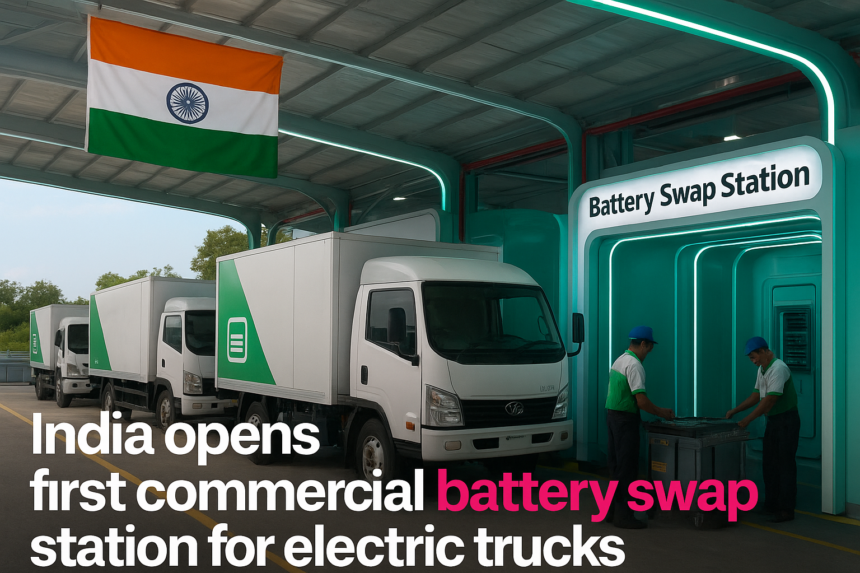Introduction
India has achieved another milestone in its journey toward clean and sustainable transportation! The country has officially launched its first commercial battery swap station dedicated to electric trucks, marking a new chapter in the electric mobility revolution.
A Major Step Toward Green Logistics
The new battery swap station allows electric trucks to exchange drained batteries with fully charged ones within minutes, eliminating long charging times and keeping vehicles on the move. This innovation is expected to revolutionize the logistics industry, especially for fleets operating across long distances.
Unlike traditional charging stations, the battery swap model ensures zero downtime drivers can simply swap out depleted batteries for charged ones and continue their journey, saving both time and energy.
Boosting India’s Electric Mobility Goals
This initiative aligns with India’s broader goal of achieving net-zero emissions by 2070 and promoting eco-friendly commercial transportation. With the logistics sector accounting for a major portion of India’s fuel consumption, switching to electric trucks and battery swapping solutions can drastically reduce carbon emissions.
According to officials, the station is equipped with advanced robotics, AI-based safety systems, and real-time monitoring to ensure fast and secure battery replacements. The setup can handle multiple trucks simultaneously, making it highly efficient for commercial use.
Industry Impact and Future Expansion
Experts believe that this move will accelerate the adoption of electric commercial vehicles in India. Logistics companies and fleet operators can now transition to EVs without worrying about charging delays.
Following this first installation, more such battery swap hubs are expected to open across major highways and industrial corridors — including Coimbatore, Chennai, Bengaluru, and Pune — to support the growing number of electric freight vehicles.
This milestone not only enhances India’s clean energy infrastructure but also sets a strong example for other developing nations striving for sustainable logistics solutions.




